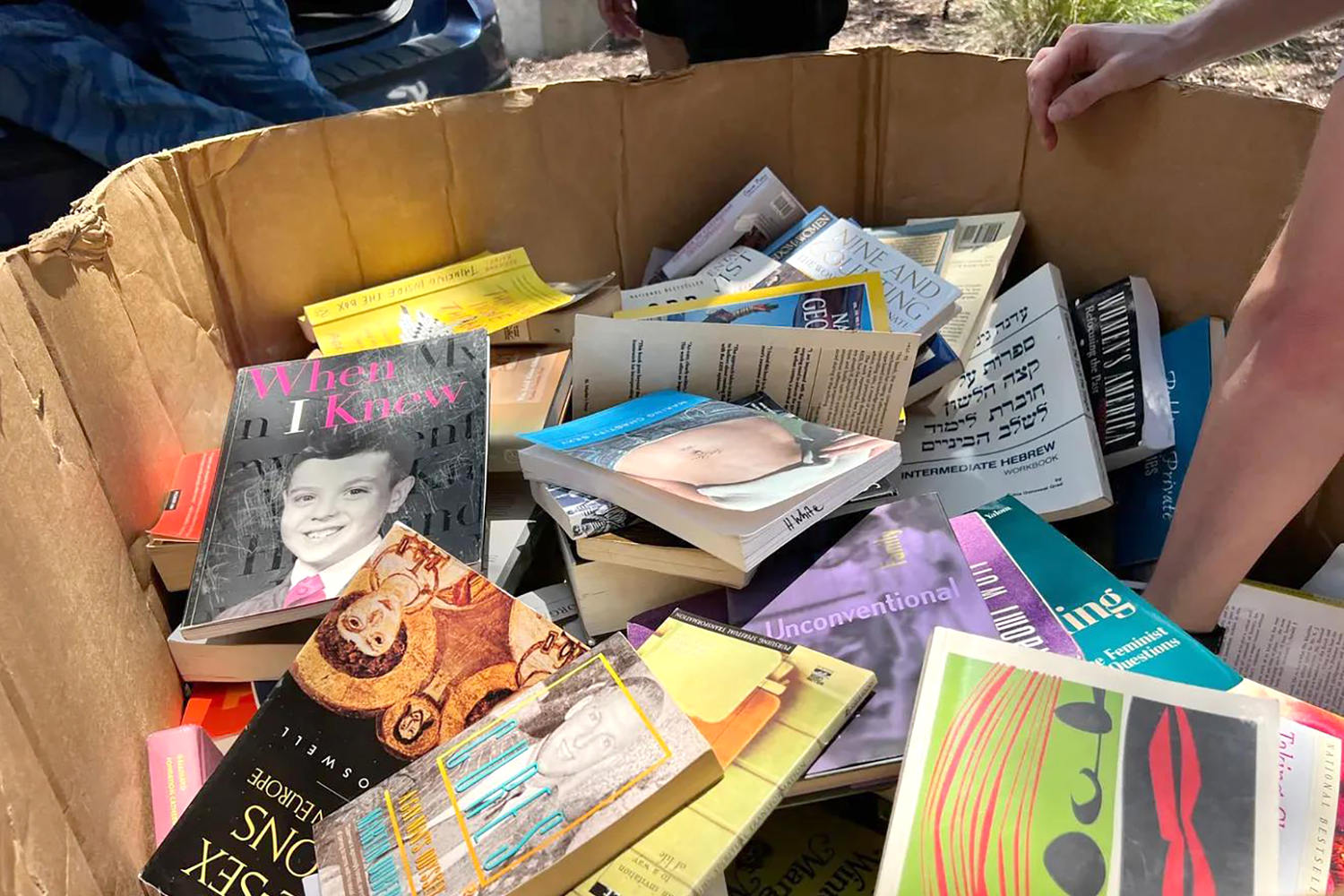
The news that two students and two teachers were killed, and nine people were wounded, in a Wednesday shooting at Apalachee High School in Winder, Georgia, should draw forth our full fury.
“What should have been a joyous back-to-school season in Winder, Georgia, has now turned into another horrific reminder of how gun violence continues to tear our communities apart,” President Joe Biden said in a press release that day. “Students across the country are learning how to duck and cover instead of how to read and write. We cannot continue to accept this as normal.”
There’s a logic to the priorities of banning books over controlling guns: Conservative ideology seeks to conserve the societal status quo in order to maintain society’s sexist and racist power structures.
But it is normal, in America. It has been normal. And the system has been intentionally designed to keep this — the lack of gun regulation, egregiously, in the name of “freedom” — the norm. Congress has been largely unwilling and, arguably, even resistant to pass gun control legislation since the 1994 Federal Assault Weapons Ban, which President George W. Bush allowed to expire in 2004. The first major piece of gun control legislation since this ban was the 2022 Bipartisan Safer Communities Act, which implemented background checks for gun purchases under the age of 21 and outlawed the trafficking of illegal firearms.
Even more egregious is the fact that books have been deemed dangerous and must be banned while guns have been protected fiercely. And therein lies the tragic reality of present-day America.
Rather than ban guns as a nationwide public safety effort, this political negligence (thanks in large part to a powerful gun lobby) has forced school administrators and teachers to emend school curricula and the environment around the credible threat of gun violence, with traumatizing active shooter drills and the instillation of carceral apparati like metal detectors and fences and locked doors.
Still, such limitations are not enough to create a safe educational environment or one that is conducive to learning, a vulnerable experience that requires the freedom of known security. Children like the 14-year-old Apalachee shooter can still get their hands on a gun, or five, especially when guns saturate our culture. The nonprofit The Trace estimates that there are more than 378 million guns in circulation in the United States, not accounting for 3D-printed or DIY guns. That’s more guns than people. More weapons designed to kill than people to be killed.
There’s a logic to the priorities of banning books over controlling guns: Conservative ideology seeks to conserve the societal status quo in order to maintain society’s sexist and racist power structures. Education, as a key indicator of social mobility and determinant of health, thus has been a perennial battlefield in America. Ignorance is bliss, the saying goes, but it is also a necessity for conservatives who do not want traditions and traditional ways tested or overturned.
Books, and all the potential they possess within their pages to stimulate curiosity and encourage deep and critical thinking, thus have been political targets for conservatives. They are vehicles of liberation, of opening the mind, of wandering into corners of thought yet unexplored. And they are being banned at a greater frequency than ever before. According to a 2024 PEN America report, 4,239 books were banned in fall 2023 semester — more than were banned during the entire previous academic year (3,362).
As I wrote in my book, “Breaking Free: The Lie of Equality and the Feminist Fight for Freedom:”
Guns are weapons that kill or maim. Books are published to educate and enlighten. One is a barrier between the self and the world, representing aggression, intimidation, and violence misconstrued as “protection.” The other is a conduit between the self and the world, connecting the reader to people unlike themselves and fostering critical thinking and a self-awareness born from empathic connection. Yet US legislators and a vocal minority of the public would rather a teacher be armed with a gun than teach a book that has a gay character.
That guns — and not books — are cherished as an emblem of American freedom tell us everything about the meaning of freedom in this country. The predominant understanding of freedom in America—a definition that stretches back to the nation’s founding in slavery and genocide—is what both historian Tyler Stovall and writer Ta-Nehisi Coates have called “white freedom.”Entitlement without accountability, either personal or structural. As author Ta-Nehisi Coates described it in The Atlantic, white freedom is “freedom without consequence, freedom without criticism, freedom to be proud and ignorant; freedom to profit off a people in one moment and abandon them in the next; a Stand Your Ground freedom, freedom without responsibility, without hard memory; a Monticello without slavery, a Confederate freedom.”
Guns kill. Books liberate. So why are books being banned, while guns are not? That guns are valued more than books in our society represents a devastating reality that the United States is hostile to our collective freedom.

Leave a Reply